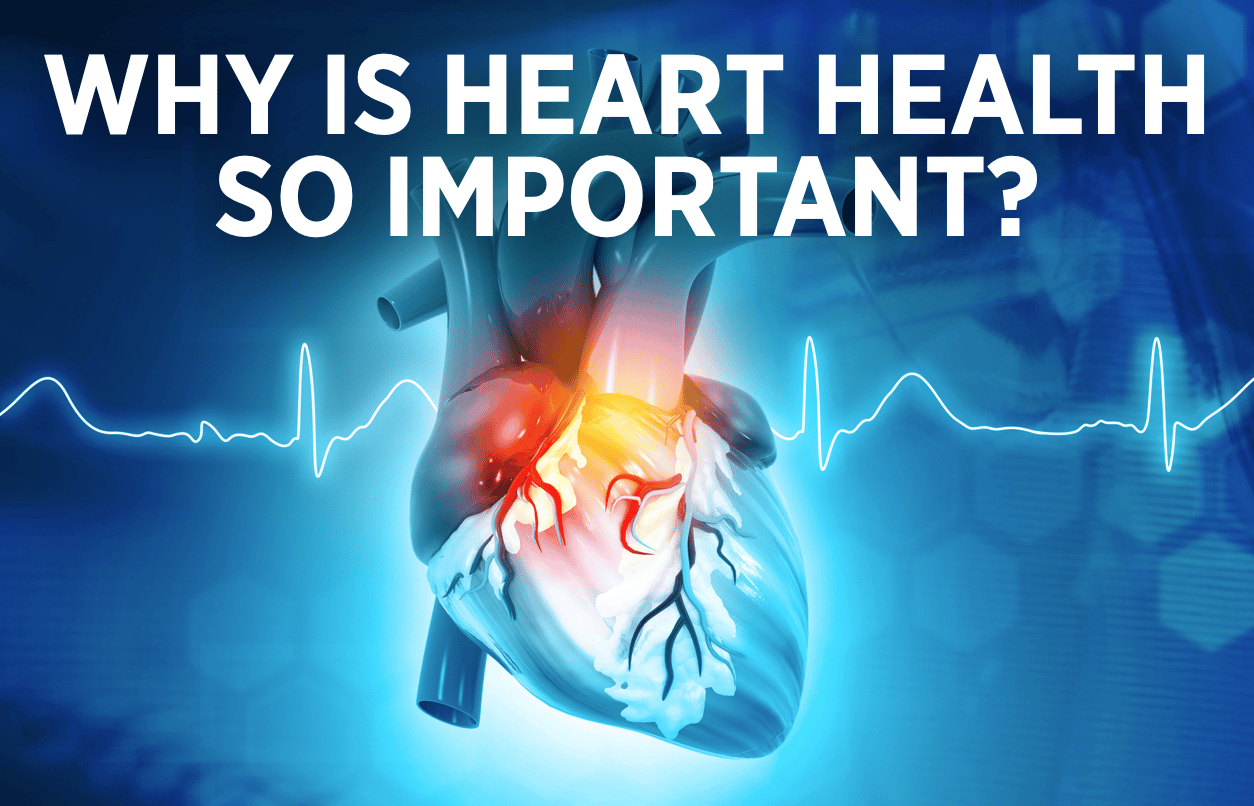
Why is Heart Health so Important?
Medically reviewed by Dr. Andy Manganaro, MD, FACS, FACC
Published on 2/05/2021
Why is Heart Health Important?
Sometimes it’s difficult to prioritize heart health because the threat doesn’t feel tangible or immediate, and the prevention efforts can mean overhauling your lifestyle. Starting small by taking a daily walk or replacing fast food with home-cooked meals (including veggies!) can be great ways to get the ball rolling, but heart health can still be an easy concern to push to the back burner. To truly cultivate the motivation to prioritize your heart health, you have to understand why it’s important.
Heart disease is the leading cause of death in the U.S.
The first and most obvious reason is that heart disease is deadly. More people die from heart disease in the U.S. than all cancers combined — and that includes men and women. It’s the number one killer of adults in the U.S., and it has been for decades. Tragically, the American Heart Association says that 82 percent of Americans know heart attacks can be prevented but don’t do anything about it. And 72 percent of Americans don’t think they’re at risk for heart disease. Considering the fact that obesity is a risk factor and 42.4 percent of Americans struggle with obesity, it’s very unlikely that 72 percent of Americans exhibit no risk factors. In fact, nearly half of American adults have already been diagnosed with some form of cardiovascular disease, according to a 2019 issue of the journal Circulation.
The American Heart Association also reports that 2,300 people die from cardiovascular disease (stroke and heart disease) every day. Even more tragic, 80 percent of these deaths are preventable through lifestyle changes. We have to take these statistics seriously if we want to lower these numbers and live longer, healthier lives.
Heart disease affects your mental health
A second reason to care about your heart health is because it affects your mental health. A recent survey conducted by the British Heart Foundation’s Heart Matters Magazine found that 68 percent of people with heart disease said their condition had affected them mentally, emotionally or psychologically.
This impact on mental health largely stems from fear and anxiety around having a heart attack, stroke or cardiac arrest, which also encompasses the effect those events would have on loved ones. Many people with heart conditions are worried about leaving their children or spouse without support. Even more concerning is the fact that in this survey, 67 percent of those people whose mental health had been negatively impacted by heart disease said they didn’t talk to anyone about it.
Not only is it important to keep yourself healthy to prevent a medical emergency, but it also minimizes the likelihood of experiencing the emotional and mental toll that can come along with a diagnosis.
Heart disease is largely preventable, but not reversible
Remember that 80 percent of strokes and heart disease are preventable, even though heart disease is the number one killer of adults in the U.S. Though you can live with heart disease and often prevent further damage, there is no cure. Once plaque begins to build up in your arteries, for example, it will not go away on its own with diet and lifestyle changes. In severe cases a doctor may recommend removing the plaque surgically, but in most cases the priority is to prevent further buildup.
In addition to eating a balanced diet and getting regular exercise, keeping tabs on your body is crucial to prevention. Getting regular checkups and staying in touch with your general practitioner is important, and if you exhibit any risk factors, getting screened for cardiovascular diseases could save your life. Screenings are simple and non-invasive, and they can tell you whether or not you have plaque buildup in your arteries or show signs of atrial fibrillation (an irregular heartbeat) and other cardiac issues.
It’s a good idea to talk to your doctor about getting screened if you exhibit any of these risk factors:
- Age 50+
- Family history of heart disease or stroke
- Obesity
- High blood pressure
- High cholesterol
- Diabetes
- Smoking
Stay Informed and Prevent Heart Disease
As always, staying informed about your health is the number one key to prevention. Life Line Screening provides quick, painless screenings for atrial fibrillation, carotid artery disease, peripheral artery disease, and more. Schedule a screening today to arm yourself with knowledge about your own health so you can be better equipped to live the life you want to live. If you have any questions about screenings or heart health, please give us a call at 888.852.8378. We would love to help.
Sources
American Heart Association – “February marks 56th consecutive American Heart Month”
CDC – “Adult Obesity Facts”
American College of Cardiology – “Latest Statistics Say Nearly Half of Americans Have Some Form of Heart Disease”
British Heart Foundation – “Heart Disease and Mental Health”